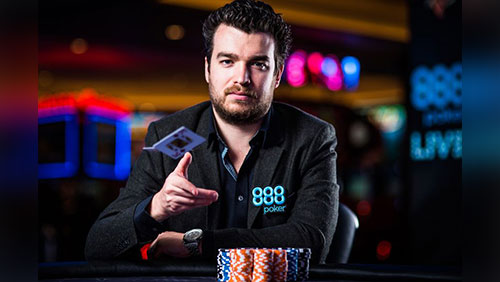A short little ditty focusing on the role social media plays in our lives and how it can affect the people living in the poker bubble.
A billion people log on to Facebook daily.
According to a 2014 study published in Computers in Human Behaviour, only 9% of that mass connected to communicate with someone.
So what are people doing?
Aside from the obviousness of the brainwashing, people are taking part in a broad variety of activities, with time spent wishing your life was as exciting as your friends ranking highly.
And if you think that sounds like fun, think again. The same study showed that by the time most people had finished checking out their best friend’s wife’s new bikini, most people felt like they had wasted their time.
Facebook makes you sad, and if that’s true the same is likely for Twitter, Instagram, SnapChat and whatever social media startup has reached Genesis since I began typing.
So why does it make you sad?
Envy.
In a 2016 issue of Current Opinion in Psychology researchers discovered that envying your friends leads to depression. With more than 70% of users checking Facebook daily, that’s a lot of the green stuff.
More than any other time in history, it’s easier to be disappointed in the way we live our lives. Our friends are prettier, have better vacations, and are deeper in love. We know this because they show us this.
This exaggerated edit of 21st Century life is driving us bonkers, and professional poker players are at a greater risk of turning more maniacal than David Kessler during a full moon.
In the poker world, editing your life has transcended social media. The number of people living a facade is incredible. People talk about the dreaded bad beat story, and although everyone has a humdinger or two, we fill the cutting room floor with loss and despair, with only the good parts making the final edit.
And who can blame them?
Earlier this week, The Mirror ran with the headline: How British Poker Stars Went From Solitary Student Player to a Card King Worth £13 Million when promoting Chris Moorman’s new book.
Moorman is mustard.
But £13m?
Poker players drowning in hundreds of thousands of makeup travelling all over the world, eating in the swankiest restaurants, and competing in big buy-in events is a beautiful picture processed through a very biased filter.
When you blend luck with this false exterior, then things become cloudier. You and your buddy are equally skilled, but he keeps winning, and you keep losing. It doesn’t take long before you find it difficult even to give him the celebratory high five because you are afraid you’ll take his hand off.
There is a different way of looking at this. Seth Godin calls it Constructive Dissatisfaction.
Base your dissatisfaction on a legitimate comparison. Play Russian Roulette with envy until it loses then begin focusing on what your friend is doing right.
I’m not talking about taking a ruler to their incredibly chiselled cheekbones. Analyse their play to see what moves you aren’t making. Speak to them about game theory and see where you have fallen behind. Ask them who they are using as a mentor and request an introduction.
So the next time you end up on Facebook searching for a photograph of Patrik Antonius in his tight whites may I suggest that you turn it off before you become sad and tune into the High Stakes lobby on partypoker and watch the man in action, instead.
As Seth Godin says,
“If you can find some fuel to help you reach your goals, not their goals, have at it.”





